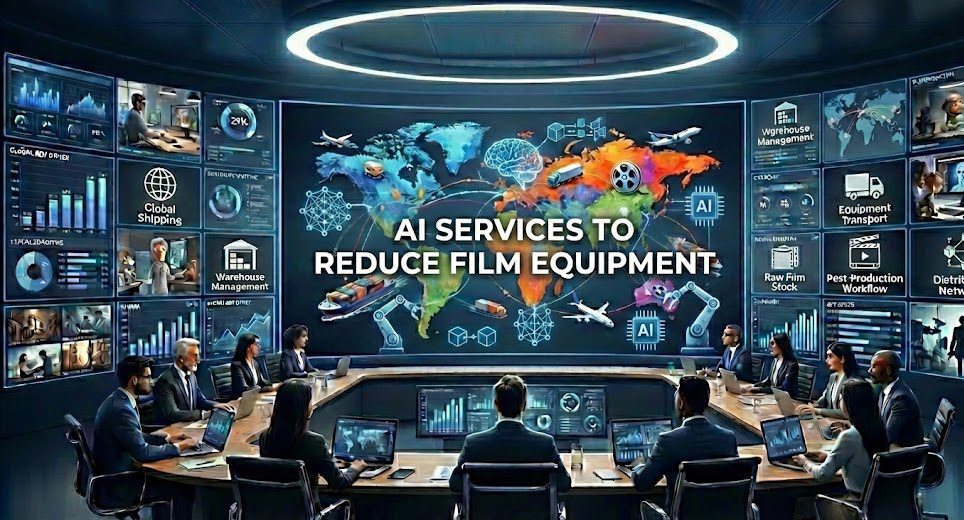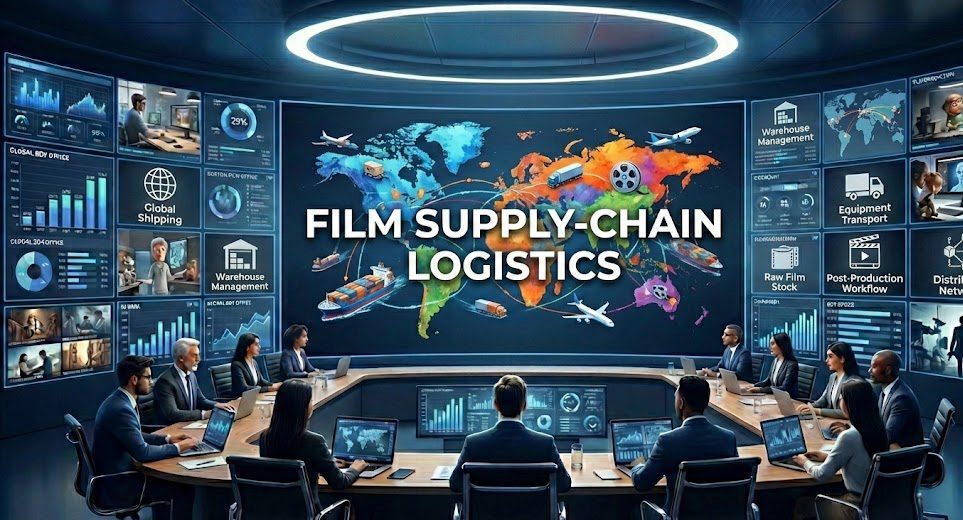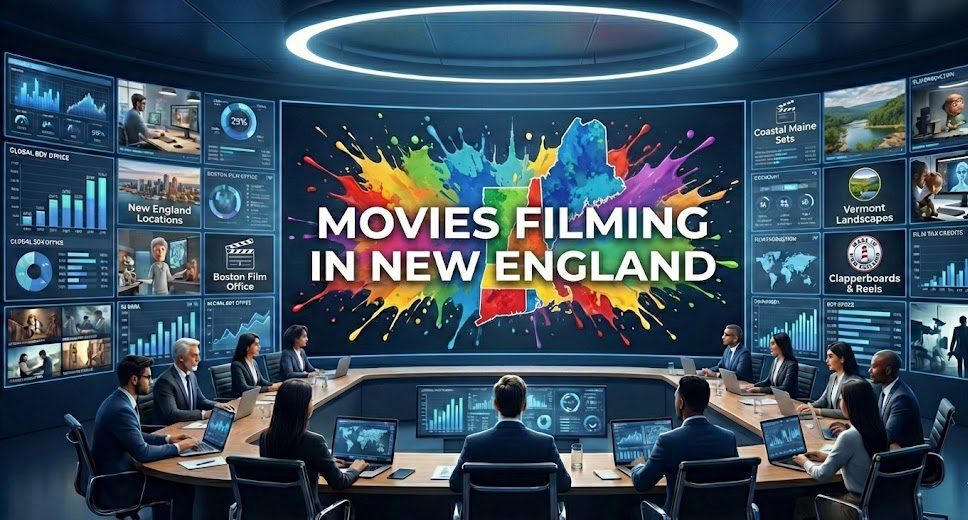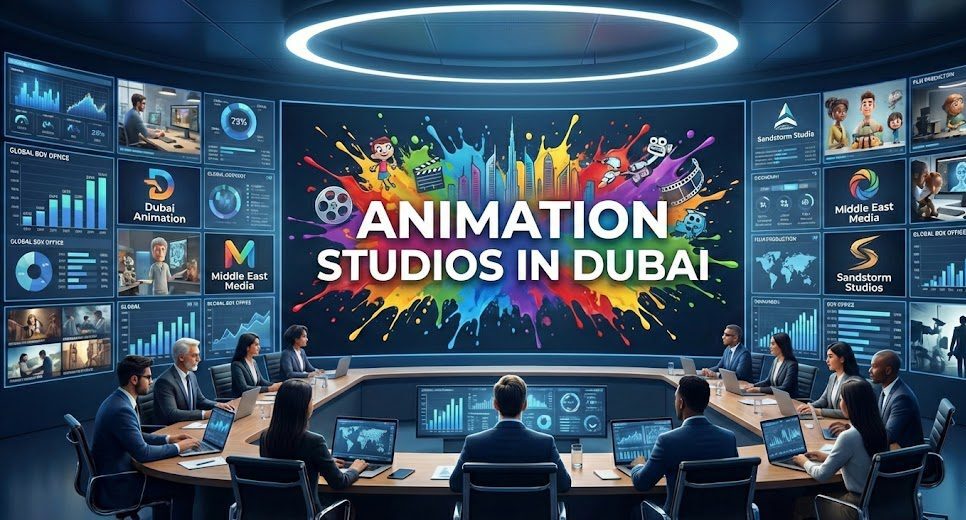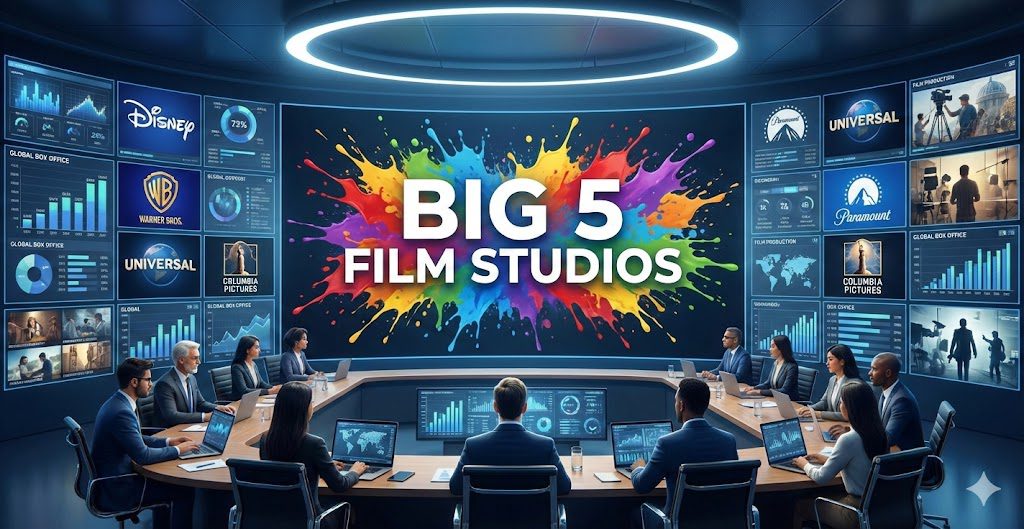Introduction
The African continent is buzzing with creative energy, and its film industry is no exception. From gripping dramas to hilarious comedies, African storytellers are eager to share their voices with the world. However, turning a brilliant script into a cinematic masterpiece often comes down to one crucial element: funding.
Securing film funding in Africa can feel like a maze, but don’t you worry! This article will shine a light on the diverse avenues available, helping African studios and producers like you navigate this exciting landscape. We’ll explore traditional grants, innovative crowdfunding, and how to catch the eye of investors, ensuring your indie film gets the financial backing it deserves.
Table of content
- Introduction
- Key-Takeaways
- Understanding the Landscape of Film Funding in Africa
- Traditional Channels: Tried and Tested Routes for Film Funding in Africa
- The Rise of New Waves: Innovative Approaches to Film Funding in Africa
- Spotlight on Success: Case Studies and Regional Insights in Film Funding in Africa
- Vitrina: Your Partner in Navigating Film Funding in Africa
- Preparing Your Pitch: Essential Tips for Securing Film Funding in Africa
- Conclusion
- FAQs
Key Takeaways
| Aspect of Film Funding | Key Insight |
|---|---|
| Current Landscape | Film funding in Africa is a dynamic mix of traditional methods and new, innovative approaches. |
| Traditional Routes | Government grants, cultural funds, and institutional support remain vital but can be competitive. |
| Emerging Models | Crowdfunding, private equity, and VOD platform commissions are opening new doors for indie filmmakers. |
| Regional Strengths | Hubs like Nollywood and South Africa offer unique funding ecosystems and lessons. |
| International Collaboration | Co-productions and diaspora investments are increasingly important for larger projects. |
| Pitching & Preparation | A strong project package, including a solid pitch and business plan, is essential to attract funders. |
| Vitrina’s Role | Platforms like Vitrina can connect you with global partners and resources. |
Ready to Navigate African Film Finance?

Understanding the Landscape of Film Funding in Africa
Navigating the world of film funding in Africa means understanding both the amazing chances and the tricky bits. The continent’s film scene is growing fast, with more and more unique stories waiting to be told. But, getting the money to make these films can be tough. Think of it like finding a path through a beautiful, but sometimes dense, forest. You need the right map and tools!
Why is securing film funding in Africa crucial for indie studios?
For independent studios, getting funding isn’t just helpful; it’s often the lifeline that brings a creative vision to life. Without adequate funds, brilliant scripts might stay on the shelf, and talented filmmakers might not get the chance to showcase their skills. Financial backing allows for better production quality, hiring skilled crews, accessing good equipment, and effective marketing – all essential for a film to succeed both locally and internationally.
What are the common hurdles African filmmakers face?
Filmmakers in Africa often bump into a few common roadblocks. Sometimes, there’s limited access to big investors or established film funds. Economic conditions in some regions can make private investment scarce. Plus, navigating the paperwork for grants or international co-productions can be complex. There’s also the challenge of distribution – making sure your funded film reaches a wide audience to recoup investments and build your studio’s reputation. Understanding these challenges in African film funding is the first step to overcoming them.
| Funding Source Type | Potential Amount | Pros | Cons |
|---|---|---|---|
| Government Grants | Varies (Small to Medium) | Supports local content, often non-recoupable | Highly competitive, bureaucratic, specific criteria |
| Private Investors | Varies (Medium to Large) | Can offer larger sums, industry connections | May seek significant creative control or equity |
| Crowdfunding | Varies (Small to Medium) | Audience engagement, proof of concept | Requires strong marketing, no guarantee of success |
| Co-Productions | Varies (Medium to Large) | Access to multiple markets, shared resources | Complex legal and financial structuring |
- The African film industry is projected to generate billions in revenue in the coming years.
- Nollywood alone produces more movies annually than Hollywood, by volume.
- Streaming services are increasingly investing in African original content.
- Youth engagement in filmmaking is at an all-time high across the continent.
Traditional Channels: Tried and Tested Routes for Film Funding in Africa
Even with new ways to get money, the old paths are still super important for film funding in Africa. These are the routes that filmmakers have used for a while, like government help and support from big organizations. They’re like well-trodden trails in our funding forest – they can lead you to your goal if you know how to follow them.
How do government film funds operate in various African countries?
Many African nations have recognized the cultural and economic power of film and have set up government film funds. For example, countries like South Africa (e.g., the National Film and Video Foundation – NFVF), Kenya (Kenya Film Commission), and Nigeria have bodies that offer grants, tax incentives, or development funds. These funds often aim to promote local stories, develop talent, and grow the national film industry. The application processes can be detailed, requiring a strong project proposal and budget.
What types of grants and subsidies are available for African filmmakers?
Beyond national funds, various African film grants and subsidies exist. These might come from cultural institutions, pan-African organizations (like the African Union), or international bodies dedicated to supporting arts in developing regions. Some grants focus on script development, others on production, and some on post-production or distribution. It’s like finding different kinds of fruit on your journey – each helps in a different way.
Are international cultural organizations a viable funding source?
Yes, indeed! Organizations like the Institut Français, Goethe-Institut, or the British Council often have programs that support filmmakers in Africa, sometimes through co-production support or cultural exchange initiatives. The ACP-EU Culture Programme is another significant avenue. These can be great for projects that have international appeal or promote cross-cultural understanding. They often look for unique voices and stories that resonate globally.
| Example Film Fund/Organization | Country/Region Focus | Typical Support Area |
|---|---|---|
| National Film and Video Foundation (NFVF) | South Africa | Development, Production, Marketing, Distribution |
| Kenya Film Commission (KFC) | Kenya | Film Financing, Capacity Building, Marketing |
| Ouaga Film Lab | West Africa | Development, Co-production |
| Berlinale World Cinema Fund | International (strong focus on Africa) | Production, Distribution |
- Research eligibility criteria thoroughly for each grant.
- Prepare a detailed and realistic budget.
- Have a compelling script and a strong creative team.
- Network at film markets and festivals to learn about opportunities.
- Seek feedback on your application before submitting.
The Rise of New Waves: Innovative Approaches to Film Funding in Africa
The world of film funding in Africa is not just about the old ways. Exciting new methods are popping up, like fresh springs in the funding forest! These innovative approaches are giving African filmmakers more chances than ever to get their stories made. Think online fundraising, getting help from private companies, and teaming up with big streaming services.
Is crowdfunding a game-changer for African indie films?
Absolutely! Crowdfunding for African movies has become a fantastic tool. Platforms like Kickstarter, Indiegogo, and even Africa-focused ones like Thundafund (Note: this is an example, not a user-provided company) allow filmmakers to pitch their ideas directly to a global audience. People who love the project can contribute small amounts, which add up! It’s not just about money; it’s about building a community around your film before it’s even made. This shows potential bigger investors that people are excited about your story.
How can African studios attract private equity and angel investors?
Attracting private equity film Africa or angel investors requires a business-savvy approach. These investors are looking for a return on their investment. So, you need a strong business plan, clear financial projections, and a great pitch that shows how your film can be profitable. Highlighting the unique appeal of your story, your team’s experience, and potential distribution channels is key. It’s about showing them that your art is also a smart investment.
What role do co-production treaties play in expanding funding opportunities?
Film co-production Africa initiatives are super helpful. When countries sign co-production treaties, it makes it easier for filmmakers from those countries to work together. This means you can pool resources, access funding from multiple countries, and reach wider audiences. For example, South Africa has co-production treaties with several countries. These partnerships can bring in more money and expertise, making bigger and better films possible.
How are VOD platforms contributing to film financing in Africa?
Video-on-Demand (VOD) platforms like Netflix, Amazon Prime Video, and regional players like Showmax are increasingly investing in African content. This VOD platforms and African film financing trend is a huge boost. They might commission original films or series, or acquire completed films for distribution. This not only provides funding but also gives African stories a global stage. Getting a deal with a VOD platform can be a major win for an indie studio.
| Crowdfunding Platform Type | Key Features for African Filmmakers |
|---|---|
| Global Platforms (e.g., Kickstarter, Indiegogo) | Large global audience, established infrastructure, various funding models (all-or-nothing, flexible). |
| Africa-Focused Platforms | Better understanding of local context, payment gateways suited for African users, dedicated support for regional projects. |
| Donation-Based Platforms | Focus on social impact or artistic merit, good for documentaries or community-focused films. |
- Create a compelling campaign video.
- Offer attractive and unique rewards for backers.
- Promote your campaign heavily on social media.
- Engage with your backers regularly with updates.
- Have a clear plan for how the funds will be used.
Want Your Indie Film to Shine Globally?

Spotlight on Success: Case Studies and Regional Insights in Film Funding in Africa
Learning from those who’ve walked the path of film funding in Africa successfully is incredibly valuable. There are shining examples across the continent, from the bustling film hub of Nollywood to the well-structured industry in South Africa. These stories and regional strengths offer inspiration and practical lessons for your own funding journey. It’s like finding signposts left by other travelers in our funding forest!
What can we learn from Nollywood’s unique funding models?
Nollywood funding models in Nigeria are famous for their resourcefulness and speed. Often relying on private investors, pre-sales to marketers, and a quick turnaround, Nollywood has become a powerhouse. While budgets might traditionally be lower, the sheer volume of production is astounding. Key lessons include understanding your local market deeply, building strong networks with distributors and marketers, and being adaptable. The rise of cinema-quality Nollywood films also shows an evolution towards larger budgets and international co-productions.
How is South Africa fostering film investment?
South African film funding benefits from a more structured approach, including significant government support through the NFVF, various tax incentives like the Foreign Film and Television Production and Post-Production Incentive, and regional film commissions (e.g., in Gauteng, Cape Town, KwaZulu-Natal). This environment has attracted international productions and fostered a skilled local industry. Their model highlights the importance of public-private partnerships and creating an attractive environment for both local and international investors.
Are there notable success stories of indie films funded within Africa?
Yes, many! Films like “Rafiki” (Kenya), “The Wedding Party” (Nigeria), “Tsotsi” (South Africa – an Oscar winner!), and “Atlantics” (Senegal) are just a few success stories of funded African films that gained international acclaim. These films often utilized a mix of funding sources: local grants, private investment, international co-production funds, and festival awards. Their success demonstrates the global appetite for authentic African narratives and the potential for a strong return on investment.
| Notable Funded African Film | Country of Origin | Example Funding Method(s) |
|---|---|---|
| “Tsotsi“ | South Africa | National funds, International co-production |
| “The Wedding Party” | Nigeria | Private investment, Corporate sponsorship |
| “Rafiki” | Kenya | International film funds, Co-production |
| “Atlantics” | Senegal | French CNC advance, International sales |
- A unique and compelling story is paramount.
- Building a strong, experienced team inspires confidence.
- Persistence and networking are crucial.
- Leveraging multiple funding sources is often necessary.
- Understanding your target audience and distribution strategy from the start.
Vitrina: Your Partner in Navigating Film Funding in Africa
Finding the right partners and information can make all the difference when you’re seeking film funding in Africa. That’s where a platform like Vitrina comes in. Think of Vitrina as your smart compass and map for the global entertainment marketplace, helping you connect with the people and resources you need to bring your African film projects to life.
How can Vitrina connect African studios with potential investors and distributors?
Vitrina is designed to bridge gaps in the global media and entertainment ecosystem. For African studios, this means a powerful way to get visibility with international investors, sales agents, distributors, and co-producers who are actively looking for fresh content and talent. By showcasing your projects and studio profile on Vitrina’s platform, you can reach a curated network of decision-makers who might otherwise be hard to access. It’s about making those crucial global connections easier.
Can Vitrina’s project tracker help manage funded projects effectively?
Once you’ve secured funding, managing the project efficiently is key to satisfying your investors and delivering a great film. While Vitrina’s core strength lies in connecting buyers and sellers and providing market intelligence, understanding the project lifecycle is crucial. For detailed project management, specialized tools are often used, but Vitrina’s insights into ongoing projects and deals in the market can help you benchmark and stay informed about industry trends, which is valuable context for any funded project.
| Vitrina Feature/Benefit | How It Supports Film Funding & Production |
|---|---|
| Global Marketplace Access | Connects African studios with international investors, distributors, and co-producers. |
| Company & Content Discovery | Helps funders find promising African projects and talent; helps studios find partners. |
| Market Intelligence & Trends | Provides data on what content is in demand, who is buying, and deal activities. |
| Networking Opportunities | Facilitates introductions and relationship-building within the industry. |
- Showcase your studio’s unique strengths and past successes.
- Clearly outline your current projects seeking funding or partnership.
- Use Vitrina’s discovery tools to identify potential financial partners aligned with your genre and budget.
- Stay updated on market demands to tailor your pitch effectively.
By leveraging platforms like Vitrina, African studios can significantly enhance their ability to navigate the complex landscape of film funding in Africa and connect with the global entertainment economy. It’s about using smart tools to open bigger doors.
Preparing Your Pitch: Essential Tips for Securing Film Funding in Africa
Once you’ve identified potential sources for film funding in Africa, the next big step is convincing them your project is worth their investment. A powerful pitch is your golden key! It’s not just about having a great story; it’s about presenting it in a way that excites and assures funders. Think of it as preparing the most delicious meal for an important guest – every ingredient and the presentation matters.
What makes a compelling film pitch for the African market?
A compelling film pitch for the African market – and indeed, for international funders looking at Africa – often highlights authenticity, cultural uniqueness, and universal themes. Funders want to see a story that resonates, has a clear target audience, and ideally, showcases fresh perspectives. Your passion for the project must shine through, but so must your professionalism and understanding of the market. Show them why this story, by this team, right now.
How important is a strong business plan and budget?
Extremely important! A great idea needs a practical roadmap. A strong business plan demonstrates that you’ve thought through the financial aspects, potential returns, and risks. Your budget should be detailed, realistic, and justifiable. This shows investors that you’re responsible and capable of managing their money effectively. It’s the difference between a dream and an actual, achievable project. This is a critical part of pitching film projects in Africa.
What do investors look for in an African film project?
Investors often look for a combination of factors: a unique and marketable story, a talented and experienced team (director, producer, key cast), a clear understanding of the target audience, a realistic budget and financial plan, and potential for return on investment (either financial or cultural impact). They are also keen on opportunities for film investors in Africa, so projects that tap into growing trends or underserved niches can be very attractive. Evidence of some existing funding or strong interest from distributors can also be a big plus.
| Pitch Deck Essential Section | Key Content to Include |
|---|---|
| Logline & Synopsis | Clear, concise summary of your story and its core conflict/appeal. |
| The Team | Bios of key personnel (producer, director, writer, main cast if attached). Highlight relevant experience. |
| Director’s Vision / Producer’s Statement | Artistic approach, tone, style, and why this story is important to tell. |
| Target Audience & Market Analysis | Who is this film for? Why will they watch it? What is the market potential? |
| Budget Summary & Financial Plan | Top-sheet budget, funding sought, proposed use of funds, recoupment plan. |
| Distribution & Marketing Ideas | Preliminary thoughts on how the film will reach its audience. |
- Not researching the funder or investor thoroughly.
- Having an unclear or convoluted story pitch.
- An unrealistic budget or financial projections.
- Lack of passion or conviction in your presentation.
- Not having a clear ‘ask’ – what exactly do you need from them?
Conclusion
The journey of securing film funding in Africa is filled with unique opportunities and its fair share of challenges. From tapping into traditional government grants and cultural funds to embracing innovative crowdfunding and private investments, African studios have a growing array of options. The key lies in understanding this diverse landscape, preparing meticulously, and telling compelling stories that resonate both locally and globally.
With passion, strategic planning, and the right connections – perhaps facilitated by platforms like Vitrina – the vibrant visions of African filmmakers can indeed find the support they need to shine on screens everywhere. The future of African cinema is bright, and it’s being funded, one amazing project at a time!
Frequently Asked Questions
The first step is to have a fully developed project: a strong script, a clear vision, and at least a preliminary budget. Then, research! Identify funds, investors, or platforms whose mandate or interests align with your project type, genre, and budget level. Networking is also key from the outset.
While it varies, genres with broad appeal like comedy, drama, and action often find it easier to attract commercial funding. However, there’s also growing interest in unique African stories, including animation, sci-fi, and documentaries with strong social impact or international relevance. Funders also look for stories that can travel.
Vitrina can help by providing a platform where you can discover and connect with production companies, studios, and financiers across Africa and globally who are interested in co-productions. You can showcase your project and search for partners based on specific criteria, making it easier to find the right fit for your film.
This can vary dramatically. Securing grants can take many months, from application to disbursement. Private investment might move faster if the pitch is compelling and the investor is decisive, but due diligence still takes time. Crowdfunding campaigns have a set duration, but the preparation takes weeks. It’s wise to plan for a funding cycle of at least 6-18 months for significant projects.





























